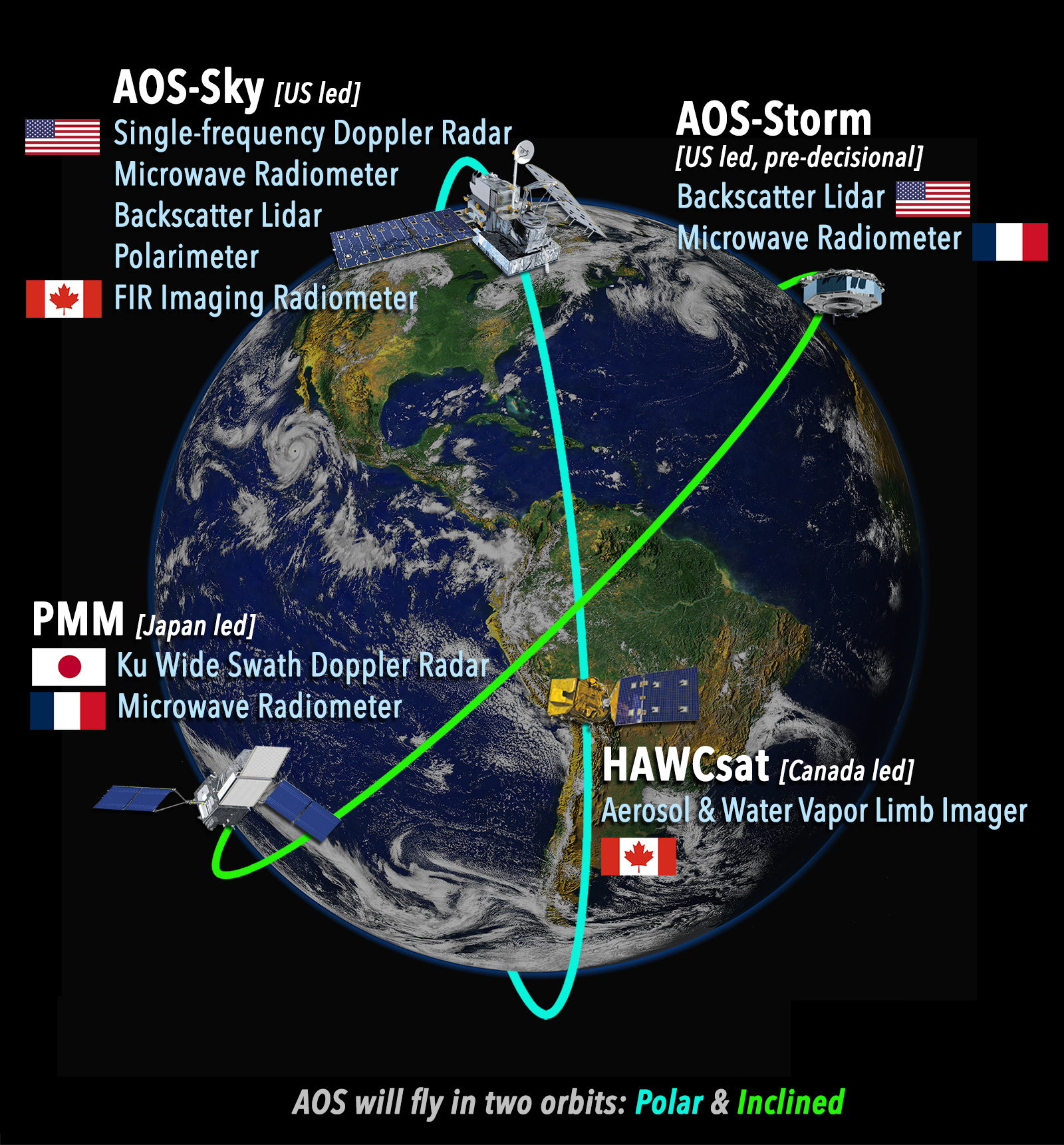Spaceborne Architecture
Spacecraft: AOS-Sky | AOS-Storm (pre-decisional) | HAWCsat | PMM
NASA-led Spacecraft:
- AOS-Sky - Space Segment Polar
- 97° inclination (i.e., polar) orbit
- Sun synchronous
- 1:30 AM/PM equator crossing
- AOS-Storm – Space Segment GPM
- 55° inclined orbit, similar to GPM (final inclination may be different)
International contributions are marked with flags. Other elements will be provided by NASA/US. Information regarding other candidate architectures considered for this mission.
| Instrument | Description | |
|---|---|---|
| AOS-Sky | ||
| Single-frequency Doppler Radar | Single-frequency Doppler radar measures clouds and light precipitation, as well as the associated liquid or ice particle motions along the radar line of sight. | |
| Microwave Radiometer | 89-113, 183, 325, 640-700 GHz, 10 km resolution, 750 km swath | |
| Backscatter Lidar | 532 nm, 1064 nm backscatter lidar, 30 m vertical resolution, 350 m footprint | |
| Multi-angle Polarimeter | 9 bands in the 380 to 1570 nm wavelength range, 0.5 km resolution, 300 km swath, multi-angle | |
| FIR Imaging Radiometer | 8 bands in the 4 - 73 µm wavelength range with 1 km resolution, 100 km swath | |
| AOS-Storm (pre-decisional) | ||
| Microwave Radiometer | 89, 183, 325 GHz, 3-10 km resolution, 700 km swath | |
| Backscatter Lidar | 532 nm, 1064 nm backscatter lidar, 60 m vertical resolution, 350 m footprint | |
| HAWCsat | ||
| Aerosol Limb Imager | 10 bands in the 610 - 1560 nm wavelength range with 0.25 km vertical resolution, 200 km swath | |
| Water Vapor Limb Imager | 1362.00 – 1368.32 nm wavelength range with 0.13 km vertical resolution, 63 km swath | |
| PMM | ||
| Ku Wide-Swath Radar with Doppler | Ku-band Doppler, 500 m vertical resolution, 250 km swath, 5 km horizontal resolution | |
| Microwave Radiometer | 89, 183, 325 GHz, 3-10 km resolution, 700 km swath | |
Launch: AOS-Storm will launch mid-2029, followed by AOS-Sky in December 2031. PMM will launch in 2029 and HAWCsat will launch in 2031.

